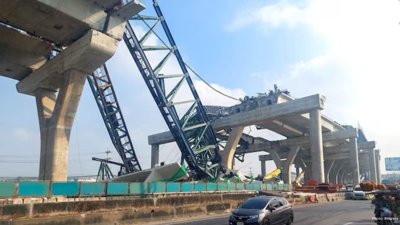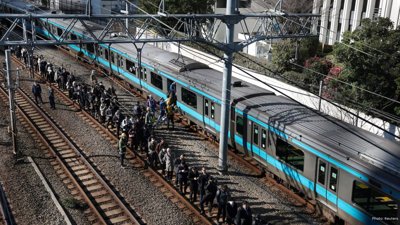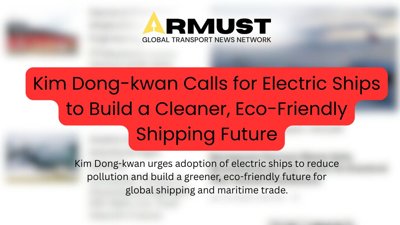
Post by : Armust Desk
Hyundai Motor Group has announced a massive investment of $26 billion in the United States over the next three years. This bold plan aims to strengthen Hyundai’s presence in the U.S., create thousands of jobs, and transform American manufacturing. The investment focuses on electric vehicles (EVs), robotics, and steel production. Overall, it is expected to create around 25,000 new direct jobs, making a significant impact on local communities and the economy.
This move highlights Hyundai’s commitment to innovation, sustainability, and growth in the U.S. automotive and manufacturing sectors. By building advanced facilities, Hyundai is positioning itself as a leader in future mobility while supporting economic development in the regions where these facilities will operate.
Expansion of Electric Vehicle Production
A major portion of the $26 billion investment is aimed at expanding Hyundai’s electric vehicle production. Hyundai plans to increase the capacity of its Metaplant America facility in Georgia, which is designed to produce a wide range of EVs under the Hyundai, Kia, and Genesis brands.
The expansion will allow Hyundai to meet the growing demand for electric vehicles in the U.S., providing cleaner transportation options and contributing to reduced carbon emissions. The new EV production lines will combine advanced technology with sustainable manufacturing processes.
Hyundai is also investing in state-of-the-art battery production and related infrastructure to support EV manufacturing. This ensures that every vehicle produced meets high standards for quality and sustainability while also positioning Hyundai as a key player in the American EV market.
Building a New Steel Mill in Louisiana
To support its automotive production, Hyundai will construct a new steel mill in Louisiana. This steel mill will provide locally produced high-quality steel for Hyundai’s vehicles, reducing reliance on international supply chains.
The local steel production will improve efficiency, ensure the timely supply of materials, and strengthen Hyundai’s control over the manufacturing process. It will also support other industries in the area by creating additional jobs and business opportunities.
By producing steel domestically, Hyundai is contributing to U.S. industrial growth and helping secure a more sustainable supply chain for future vehicle production.
Robotics Innovation Center
Hyundai is also investing in advanced robotics technology through the establishment of a new robotics innovation center. The center will produce up to 30,000 robotics units each year. These robots will serve both internal manufacturing needs and external commercial applications.
The integration of robotics in production processes will improve precision, speed, and efficiency. While robots handle repetitive or heavy tasks like welding and painting, human workers will focus on more intricate assembly, software programming, and quality control.
This combination of human talent and robotics ensures high-quality production while also preparing Hyundai for future innovations in automation and smart manufacturing.
Automation and Workforce Development
Hyundai emphasizes that the introduction of robotics and automation is meant to enhance productivity rather than replace human workers. The company anticipates that employment at its U.S. facilities, including the Metaplant America, could grow to 8,500 workers once full production is reached.
Workers will be trained to operate advanced machinery, manage software systems, and oversee automated production lines. This ensures that employees gain valuable skills in modern manufacturing, making them more competitive in the job market.
The balance between automation and human labor will not only boost efficiency but also create high-quality job opportunities across the U.S.
Economic Impact
The $26 billion investment will have a substantial impact on the U.S. economy. In addition to 25,000 direct jobs, the project will stimulate local economies through increased demand for goods, services, and infrastructure development.
The investment will also enhance the U.S.’s position as a leader in electric vehicle production, robotics, and advanced manufacturing. Local communities will benefit from new business opportunities, higher wages, and improved infrastructure.
Hyundai’s plan demonstrates that corporate investment can simultaneously promote technological innovation, economic growth, and employment opportunities.
Long-Term Implications
Hyundai’s investment aligns with broader efforts to strengthen domestic manufacturing in the United States. By localizing production, the company reduces reliance on overseas suppliers and enhances the resilience of its supply chains.
This move sets an example for other global companies, encouraging investment in U.S. industries. It also contributes to the development of advanced technologies in EVs, robotics, and steel production, supporting a sustainable and competitive industrial future.
Hyundai’s strategy reflects a vision for long-term growth, combining innovation, sustainability, and economic development. The company is not only expanding its own business but also helping shape the future of American manufacturing.
Hyundai’s $26 billion investment in the U.S. represents a transformative step for American manufacturing. By focusing on electric vehicles, robotics, and steel production, Hyundai is creating thousands of jobs, boosting local economies, and promoting technological advancement.
Hyundai, U.S. investment, electric vehicles, robotics, steel production










Advances in Aerospace Technology and Commercial Aviation Recovery
Insights into breakthrough aerospace technologies and commercial aviation’s recovery amid 2025 chall

Defense Modernization and Strategic Spending Trends
Explore key trends in global defense modernization and strategic military spending shaping 2025 secu

Tens of Thousands Protest in Serbia on Anniversary of Deadly Roof Collapse
Tens of thousands in Novi Sad mark a year since a deadly station roof collapse that killed 16, prote

Canada PM Carney Apologizes to Trump Over Controversial Reagan Anti-Tariff Ad
Canadian PM Mark Carney apologized to President Trump over an Ontario anti-tariff ad quoting Reagan,

The ad that stirred a hornets nest, and made Canadian PM Carney say sorry to Trump
Canadian PM Mark Carney apologizes to US President Trump after a tariff-related ad causes diplomatic

Bengaluru-Mumbai Superfast Train Approved After 30-Year Wait
Railways approves new superfast train connecting Bengaluru and Mumbai, ending a 30-year demand, easi